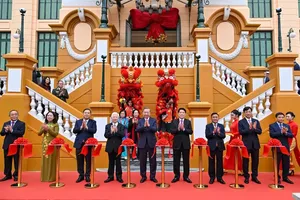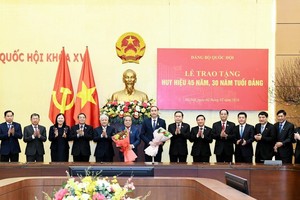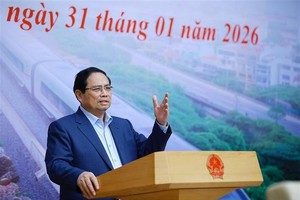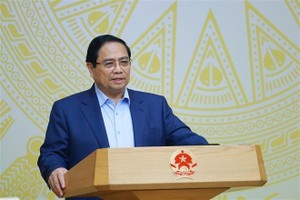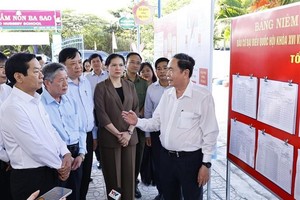The digital age is profoundly transforming how information is produced, distributed, and received. The Vietnamese Revolutionary Press can't stand aside in this flow. While transformation for the press is inevitable, how to achieve it and with what resources remains a difficult problem that many press agencies face daily.
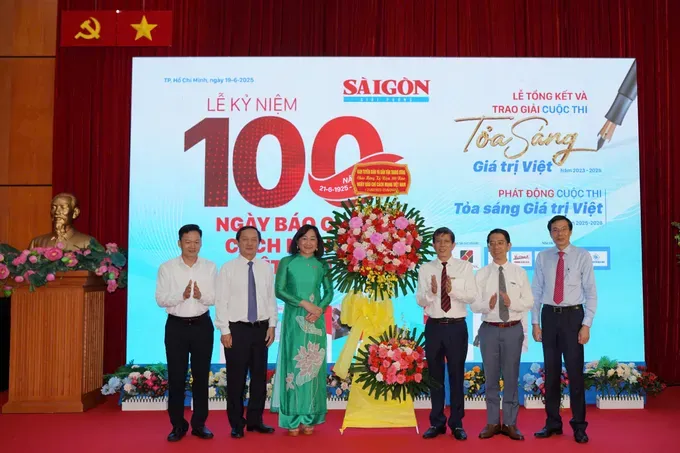
This is more than just a technical problem; it's also about mechanisms, people, and how the government positions the press' role in a rapidly accelerating society.
Numerous press agencies are grappling with a multifaceted dilemma. They must fulfill their obligations to deliver political and informational content that serves the public interest while simultaneously navigating the challenges of survival and growth in an intensely competitive media landscape. This environment is increasingly dominated by cross-border platforms wielding substantial financial resources, which further complicates their efforts.
As Do Duc Hoang, Deputy General Director of Vietnam Television (VTV), articulated, the mounting pressure of being expected to "deliver high-quality work, take on additional responsibilities, yet operate without increased resources" places a significant burden on journalists. These professionals are striving to produce compelling content despite severe constraints in funding, outdated or insufficient equipment, and limited human resources. Compounding these challenges, the economics of journalism has emerged as a critical bottleneck, hindering the ability of news organizations to sustain operations and innovate effectively.
Editor-in-Chief of Tien Phong Newspaper Phung Cong Suong highlighted the dual challenge facing the press. According to him, resources for press agencies are severely limited, yet the costs of digital transformation are prohibitively high. This situation traps news organizations in a vicious cycle—insufficient funds for investment lead to difficulties in retaining skilled talent, and the absence of talented professionals further hampers the ability to produce high-quality content.
In addition, the difference between the legal framework for businesses and the press also creates a large gap in operational capacity and the media race. Businesses are allowed to do what the law does not prohibit, while the press can only do what the law allows. Flexibility and creativity - vital factors in the digital media environment - are therefore often limited.
Confronted with these pressures, it is essential to revise the Press Law to enhance regulations regarding the specific organizational and financial structure of the press, aligning it with the realities of digital transformation and the press economy.
Furthermore, a dedicated mechanism is required to provide financial support to the press, thereby enhancing the effectiveness of policy communication. It is crucial to pinpoint key political tasks and the necessary information and propaganda to fulfill these political objectives, ensuring that the State provides funding—potentially through mechanisms such as task ordering, assignment, bidding, service procurement, or ongoing support, accompanied by a detailed list of budget-utilizing tasks.
This support goes beyond mere financial assistance; it serves as a guarantee for a force dedicated to sustaining the "ideological battlefield" amidst the information explosion. Le Quoc Minh, Editor-in-Chief of Nhan Dan Newspaper and Chairman of the Vietnam Journalists Association, has reiterated this point on numerous occasions. Chairman Le Quoc Minh asserts that to enhance the effectiveness of propaganda and safeguard the Party's ideological foundation in the digital media landscape, it is essential to establish a mechanism for the State to commission press products on digital platforms for official press agencies.
In addition, there is a consensus that establishing a public and transparent ordering system with well-defined content and format criteria will not only secure a reliable revenue stream for press agencies but also enhance content quality, reducing the tendency to chase views and sensationalize news...
Mr. Phung Cong Suong voiced his viewpoint that it is essential to regard the press as a vital cultural and media industry, deserving of suitable financial and tax policies. This acknowledgment of the press' social significance also paves the way for access to favorable investment policies, loans, and tax incentives, similar to those available to other strategic sectors. These factors are crucial for the press to evolve sustainably, professionally, and competitively in the digital era. Only by properly recognizing its role in the national economic and cultural landscape can the press fully realize its potential and fulfill its mission.
The 100th anniversary of Vietnam Revolutionary Press Day is not only an occasion to express gratitude and look back, but also an opportunity to reposition the role of the press in modern society. The press is facing a major turning point and the press - the pioneering force in protecting the ideological foundation and preserving social trust - should not be left to face challenges alone. Timely, synchronous and practical decisions will help the press overcome difficulties, develop strongly, and continue to be the vanguard force on the ideological and cultural front in the current context.
